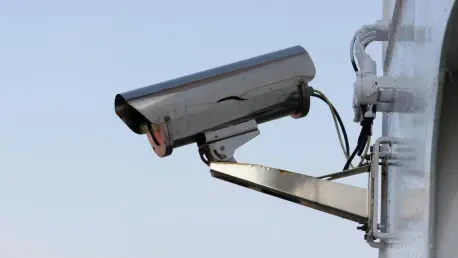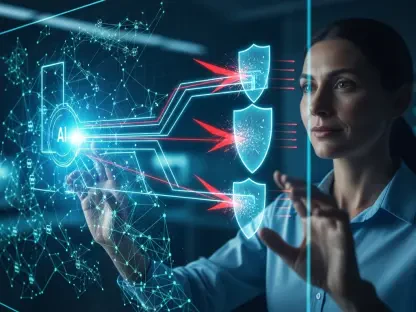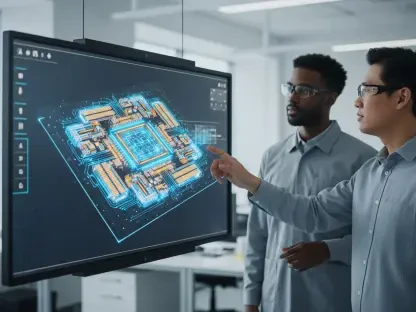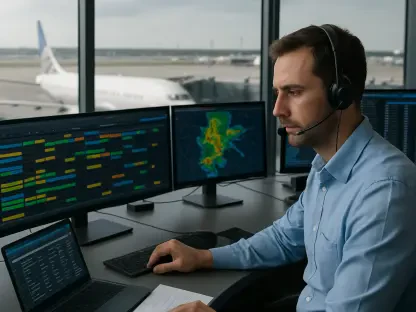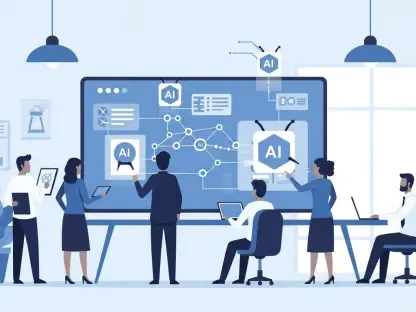In the ever-evolving landscape of travel and hospitality, ensuring safety in high-traffic environments like hotels, airports, and car rental centers has become a paramount concern for business owners and travelers alike. With challenges ranging from managing crowded lobbies during peak hours to securing late-night check-ins in isolated areas, traditional security methods often struggle to keep pace with the dynamic nature of these settings. The stakes are high, as a single security lapse can erode guest trust and damage a brand’s reputation in an industry built on first impressions. Modern technology, however, offers a powerful solution through advanced video surveillance systems that go beyond mere recording, leveraging artificial intelligence, cloud connectivity, and real-time analytics to anticipate and prevent threats before they escalate. These tools not only protect guests and staff but also streamline operations, ensuring that safety measures enhance rather than hinder the travel experience.
The urgency to adopt such technology is underscored by the rapid growth of the global video surveillance market, which is projected to surpass $130 billion by 2030, according to industry insights, reflecting a broader shift toward smarter, connected systems that cater to the unique needs of the hospitality and travel sectors. From AI-driven threat detection to seamless remote access, these innovations address critical pain points in environments where security must be both robust and unobtrusive. This exploration focuses on five leading surveillance platforms designed to meet these demands, each offering distinct capabilities tailored to diverse operational scales, whether for a boutique hotel or a sprawling airport terminal. By delving into their features and benefits, the goal is to illuminate how these systems redefine safety standards while aligning with guest expectations for convenience and trust.
Importance of Security in Travel and Hospitality
Tackling Unique Risks in High-Traffic Zones
Hotels, airports, and similar travel hubs encounter security challenges that differ vastly from other industries due to their constant flow of people and diverse interactions. Risks such as unauthorized entry, unattended luggage, or even potential threats in parking areas require vigilant monitoring that static cameras alone cannot provide. Advanced surveillance systems step in with AI-powered tools capable of identifying suspicious patterns or objects in real time, allowing staff to respond swiftly before situations escalate. For instance, in a bustling airport lounge, these systems can flag anomalies like loitering in restricted zones, ensuring that security teams are alerted instantly. This proactive approach is vital in environments where delays in response can have serious consequences, making such technology indispensable for maintaining order and safety across varied settings.
Beyond immediate threat detection, these tools also address logistical concerns unique to travel environments, such as managing peak check-in times or securing remote areas like hotel parking lots during off-hours. The ability to monitor multiple locations simultaneously through centralized dashboards ensures that no corner is left unprotected, even in sprawling facilities. This comprehensive coverage is especially critical for business travelers who often arrive at odd hours or navigate unfamiliar spaces, expecting a secure environment without visible interruptions. By integrating seamlessly into daily operations, modern surveillance platforms provide a safety net that adapts to the unpredictable nature of travel hubs, fostering an atmosphere of confidence for both guests and employees.
Building Guest Confidence Through Safety
Security in hospitality extends beyond technical measures; it plays a pivotal role in shaping how guests perceive their experience at a property or transit point. When travelers feel safe, whether walking through a hotel corridor at midnight or waiting in a crowded terminal, their trust in the establishment grows, influencing loyalty and positive word-of-mouth. Surveillance systems that offer real-time alerts and discreet monitoring ensure protection without creating a sense of intrusion, striking a balance that is crucial in an industry where guest comfort is paramount. This invisible shield of safety reassures visitors that their well-being is a priority, enhancing their overall stay or journey without an overt security presence.
Moreover, the integration of surveillance with other systems, such as access control or emergency response protocols, adds layers of assurance that incidents can be managed efficiently if they arise. For example, automated alerts to staff about a potential issue in a lobby allow for quick resolution before guests even notice a problem, preserving the seamless experience that travelers expect. This synergy not only mitigates risks but also positions hotels and travel centers as reliable havens in an era where safety concerns heavily influence booking decisions. By investing in cutting-edge surveillance, businesses signal a commitment to guest welfare, turning security into a competitive advantage that sets them apart in a crowded market.
Essential Features of Cutting-Edge Surveillance Systems
Harnessing AI for Predictive Threat Management
At the core of today’s surveillance technology lies artificial intelligence, a transformative force that shifts security from a passive to an active strategy in hospitality and travel environments. AI capabilities such as facial recognition, license plate tracking, and behavior analysis empower systems to detect potential issues before they become critical, a feature that proves invaluable in busy settings like hotel entrances or airport gates. For instance, platforms equipped with natural-language video search allow staff to retrieve specific footage instantly using simple commands, cutting down response times during emergencies. This predictive approach ensures that threats like unattended bags or unusual crowd patterns are flagged early, enabling preemptive action that safeguards everyone on the premises.
The depth of AI analytics also extends to customizing security protocols based on the specific needs of a location, whether it’s monitoring for weapons in high-risk zones or identifying unauthorized access in staff-only areas. Such precision reduces false alarms, ensuring that security personnel focus on genuine concerns rather than being overwhelmed by irrelevant alerts. This efficiency is particularly beneficial in environments where staff resources may be stretched thin during peak travel seasons. By automating routine surveillance tasks and prioritizing critical incidents, AI-driven tools free up human resources for more nuanced responsibilities, ultimately creating a safer and more responsive security framework that aligns with the fast-paced nature of travel hubs.
Leveraging Cloud Technology for Flexibility
Cloud-based solutions have emerged as a cornerstone of modern surveillance, offering unparalleled flexibility for businesses managing multiple locations or operating in dynamic travel settings. With the ability to store footage securely off-site and access it remotely via mobile devices, these systems enable managers to oversee operations from anywhere, whether they’re on-site at a hotel or halfway across the globe. This remote accessibility is a boon for international hotel chains or car rental companies that require centralized control over dispersed sites, ensuring consistent security standards regardless of geographic spread. The scalability of cloud platforms also means that businesses can expand their surveillance coverage as they grow, without the burden of extensive hardware upgrades.
Additionally, cloud technology enhances reliability through hybrid storage options that maintain functionality even during internet outages, a feature critical for uninterrupted security in remote or high-traffic areas. The ease of integrating cloud systems with existing infrastructure further reduces adoption barriers, allowing even smaller properties to benefit from advanced monitoring without significant upfront costs. This democratization of technology ensures that safety is not exclusive to large enterprises but accessible to boutique hotels or regional travel centers as well. By providing real-time insights and adaptable deployment options, cloud-based surveillance systems cater to the operational demands of the hospitality sector, making them a strategic asset for maintaining safety and efficiency across varied environments.
Leading Surveillance Platforms for Hospitality and Travel
Coram: A Comprehensive and Accessible Solution
Coram distinguishes itself as an all-in-one platform that integrates video surveillance, access control, and emergency management into a single, user-friendly dashboard, making it a standout choice for hotels and car rental centers. Its AI-driven features, such as natural-language search for rapid video retrieval and weapons detection, provide a robust defense against potential threats in busy environments. What sets this system apart is its remarkably quick 10-minute setup, which eliminates the need for extensive technical expertise, allowing even smaller properties with limited IT resources to deploy enterprise-grade security. Additionally, compliance with stringent standards like SOC 2 Type II ensures that sensitive guest data is handled responsibly, a critical factor in building trust within the hospitality sector.
Beyond ease of use, Coram’s hybrid cloud storage offers reliability by maintaining access to footage during connectivity disruptions, a vital feature for travel hubs in remote or unstable network areas. Its scalability also supports businesses of varying sizes, from boutique inns to sprawling resorts, without requiring significant hardware investments. License plate recognition further enhances its utility for parking areas, ensuring secure vehicle tracking at rental facilities or hotel lots. By combining advanced capabilities with simplicity, this platform addresses the dual need for cutting-edge protection and operational practicality, making it an ideal fit for diverse travel-related businesses aiming to prioritize safety without compromising on efficiency or guest experience.
Avigilon AltPioneering Cloud-Based Monitoring
Avigilon Alta redefines surveillance with its fully cloud-native architecture, tailored for high-traffic travel settings where mobility and scalability are paramount. Its smart motion detection and sound analytics can pinpoint unusual activities in real time, such as disturbances in airport waiting areas or hotel lobbies, enabling swift intervention. The system’s mobile credentials for access control add a layer of convenience, allowing staff to manage entry points remotely, a feature that enhances both security and operational flow. While the advanced AI functionalities may come with additional licensing costs, the seamless cloud integration ensures that businesses can expand coverage effortlessly as their needs grow.
The emphasis on remote access makes Avigilon Alta particularly appealing to managers overseeing multiple properties or those frequently on the move, as live footage and alerts are accessible from any device with an internet connection. This capability ensures that security oversight remains consistent, even when key personnel are off-site, a common scenario in the travel industry. Furthermore, its end-to-end cloud design minimizes the need for on-premises hardware, reducing maintenance burdens and allowing smaller establishments to adopt sophisticated surveillance without prohibitive expenses. By prioritizing mobility and ease of scaling, this platform caters to the tech-savvy demands of modern hospitality businesses, delivering a flexible solution that adapts to the fluid nature of travel environments.
Genetec Security Center: Powerhouse for Complex Operations
Genetec Security Center is engineered for intricate environments like airports, where security demands are exceptionally high due to regulatory requirements and large-scale operations. Its real-time incident mapping provides a detailed overview of activities across vast areas, enabling precise coordination during emergencies, while aviation-certified integrations ensure compliance with industry-specific standards. The system’s advanced analytics can detect and categorize threats with remarkable accuracy, from crowd congestion to unauthorized zone breaches, making it a critical tool for maintaining order in settings where thousands of travelers pass through daily. However, its complexity may pose challenges for smaller hotels lacking dedicated IT teams to manage setup and maintenance.
Despite the learning curve, the platform’s ability to handle multi-site monitoring and integrate with specialized systems offers unmatched value for enterprise-level travel hubs. For instance, airports can leverage its capabilities to sync surveillance with access control and emergency protocols, creating a cohesive security ecosystem that minimizes response times. The depth of customization also allows for tailored solutions, ensuring that specific risks unique to large transit points are addressed effectively. While not ideal for every hospitality setting due to its sophisticated nature, Genetec Security Center stands as a benchmark for facilities prioritizing comprehensive, high-stakes security, providing a robust framework that can withstand the pressures of the most demanding travel environments.
Milestone XProtect: Adaptable and Dependable Integration
Milestone XProtect offers a flexible, open-platform approach to surveillance, making it a reliable choice for growing travel businesses with diverse hardware needs. Its compatibility with thousands of third-party devices allows seamless integration into existing setups, a significant advantage for hotels or car rental chains looking to upgrade security without overhauling current infrastructure. Supporting hybrid deployments, the system caters to multi-site operations by enabling centralized monitoring across regional or international locations. Although native AI features require additional modules, its core strength lies in providing a stable foundation for customized security solutions tailored to specific operational demands.
The platform’s adaptability extends to its ability to scale alongside business expansion, ensuring that security remains consistent whether managing a single property or a vast network of facilities. This makes it particularly suitable for mid-sized hospitality brands planning growth, as it avoids the need for frequent system replacements. Additionally, its focus on reliability ensures uninterrupted surveillance, critical for environments where downtime can lead to vulnerabilities. By offering a balance of flexibility and dependability, Milestone XProtect serves as a practical option for travel businesses seeking a long-term security partner that can evolve with changing needs while maintaining compatibility with legacy systems, reducing both cost and complexity in implementation.
Verkada Command: Streamlined Design for Agile Setups
Verkada Command prioritizes simplicity with its plug-and-play cameras and intuitive mobile app, making it an excellent fit for smaller hotels or agile travel operations where ease of use is critical. Its AI-driven detection capabilities, such as identifying unusual activities or objects, provide robust security despite the straightforward design, ensuring that even non-technical staff can manage the system effectively. Remote access through the app allows managers to respond to incidents instantly, even when away from the property, a feature that aligns with the on-the-go nature of hospitality management. However, the premium pricing for advanced features might deter budget-conscious facilities from unlocking its full potential.
The system’s role-based controls further enhance its usability by allowing customized access levels for different staff members, ensuring that sensitive data or controls are restricted to authorized personnel only. This granularity is particularly useful in settings where temporary or seasonal staff are common, as it minimizes security risks associated with high turnover. Additionally, the focus on a streamlined setup reduces downtime during installation, enabling businesses to enhance safety without disrupting guest services. While not suited for sprawling, complex operations due to cost considerations, Verkada Command excels in delivering powerful yet accessible surveillance for compact or dynamic travel environments, offering a balance of innovation and practicality for smaller-scale needs.
Reflecting on Security Innovations in Travel
Lessons Learned from Advanced Tools
Looking back, the journey through these five leading surveillance platforms revealed a transformative shift in how safety is approached within the hospitality and travel sectors. Systems like Coram, Avigilon Alta, Genetec Security Center, Milestone XProtect, and Verkada Command demonstrated that security has evolved beyond static monitoring into a proactive, intelligent operation driven by AI and cloud technology. Each tool brought distinct strengths to the table, from Coram’s versatile ease to Genetec’s enterprise-grade precision, catering to a spectrum of needs across boutique properties and major transit hubs. Their impact was evident in how they addressed real-time threats and integrated seamlessly with operational workflows, proving that safety and efficiency can coexist.
Future Steps for Enhanced Safety
Moving forward, businesses in the travel and hospitality industry should consider aligning their security strategies with these technological advancements to stay ahead of emerging risks. Evaluating specific operational needs—whether it’s scalability for multi-site chains or simplicity for smaller venues—will guide the selection of the most fitting platform. Investing in staff training to maximize these tools’ potential is equally crucial, ensuring that even the most advanced features are utilized effectively. Additionally, staying abreast of privacy regulations will remain essential as surveillance technology advances, balancing robust protection with ethical data handling. By embracing these systems now, companies can not only safeguard their guests and assets but also position themselves as leaders in a safety-conscious market, ready for future challenges.
